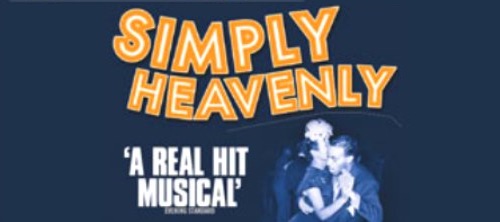The great migration of African Americans to northern cities between 1919 and 1926 was described by sociologist and critic Alain Locke in his book The New Negro (1925) as "something like a spiritual emancipation”. This new sense of release, combined with the experimental trend of American society as a whole during the 1920s and the rise of radical Black intellectuals such as Locke, Marcus Garvey and W E B DuBois all contributed to the particular styles and unprecedented success of Black artists during the Harlem Renaissance period.
Beginning as a series of literary discussions in Greenwich Village and Harlem sections of New York City, ‘The New Negro Movement’, later known as the Harlem Renaissance was formally launched on March 21,1924 at the Civic Club Dinner. Organised by Charles S Johnson, editor of the Black paper Opportunity, the dinner brought Black writers together with publishers. One of the first major outcomes of the Civic Club Dinner was the release, in 1925, of a Survey Graphic issue, ‘Harlem: Mecca of the New Negro’, edited by Locke and Johnson, devoted entirely to Black literature, folklore, and art, declaring a ‘New Negro’ renaissance to be guided by "forces and motives of [cultural] self determination." Led by writers such as Jean Toomer, Langston Hughes, Countee Cullen, Claude McKay, Nella Larsen, and Nora Zeale Hurston the Renaissance attempted to use folk themes, motifs and forms to create a new kind of art which looked to Africa as a source of racial pride and inspiration.
Langston Hughes said of the Renaissance that he "thought it wouldn't last long. For how long could a large and enthusiastic number of people be crazy about Negroes forever?" The crash of Wall Street in 1929 signalled the demise of the movement as wealthy patrons left Harlem to attend to their threatened fortunes and other fashionable causes. The end of the movement could also be seen within Harlem as alliances and friendships fell apart and the many conflicting aims it tried to fulfil, such as politics and art, race building and literature, began to take their toll.
With hindsight, the Harlem Renaissance has been criticised by many African American artists and thinkers, who saw in the movement an aping of white, middle-class sophistication. Harlem intellectuals, while proclaiming a new race consciousness, earnt the epithet ‘dicty niggers’ (taken from DuBois' ‘talented tenth’) from the very people they were supposed to be championing. Langston Hughes' said of this time that, "All of us knew that the gay and sparkling life... was not so gay and sparkling beneath the surface... Ordinary "blacks" hadn't heard of the Negro Renaissance. And if they had, it hadn't raised their wages any."
However, the legacy of the Renaissance remains enormous, providing an important cultural and political starting point for Blacks all over America. It gave African Americans a sense of pride and belonging. Alain Locke wrote of the Renaissance, "The peasant, the student, the businessman, the professional man, artist, poet, musician, adventurer and worker, preacher and criminal, exploiter and social outcast, each group has come with its own special motives ... but their greatest experience has been the finding of one another."
The Harlem Renaissance was made up of many contributors. As well as writers and artists, intellectuals, editors of journals and newspapers, hostesses, patrons, jazz musicians and entertainers contributed to the Renaissance. A few major figures are listed below, including the "midwives", as Langston Hughes termed those who brought the Renaissance about. A search on the web will provide considerable detail about their lives and work.
W E B DuBois (1868 - 1963)
Alain Locke (1885 - 1954)
James Weldon Johnson (1871 - 1938)
Jessie Fauset (1882 - 1961)
Charles S. Johnson (1893-1956)
Jean Toomer (1894 - 1967)
Countee Cullen (1903 - 1946)
Claude McKay (1889 - 1948)
Nella Larsen (1891 - 1964)
Zora Neale Hurston (1891 - 1960)
Wallace Thurman (1902 - 1934)
Richard Bruce Nugent (1906 - 1987)
Aaron Douglas (1898 - 1979)

.png)
.png)





